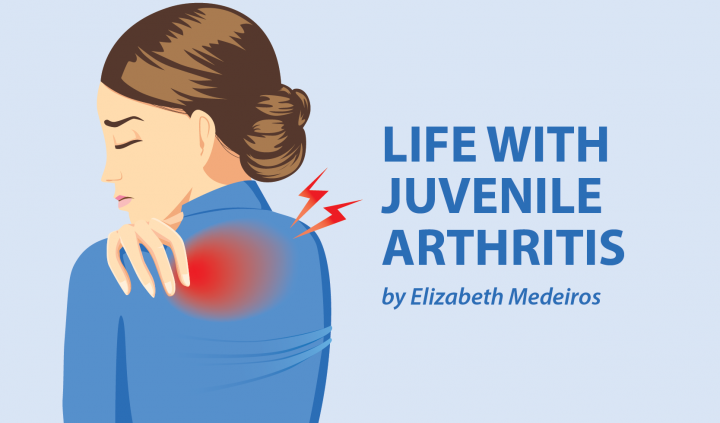As a child, I would get a little anxious around this time each summer. I knew I would be going back to school soon, and I wasn’t exactly thrilled. Like many kids, I dealt with bullying. From preschool to high school, I was an easy target: I was quiet, shy, artsy, and a little dorky.
But there were times when having juvenile arthritis (JA) fueled the fire. Unfortunately, many kids are bullied due to the effects of their JA. Stories about being picked on for having a round face due to prednisone use or jaw deformities are prevalent in JA circles, as is being called cruel names for limping or being clumsy. While it’s challenging to be bullied for any reason, being picked on for your disease makes it even worse. The experience can be incredibly isolating and depressing.
While kids need to learn to stick up for themselves and to cope, parents need to be vigilant and step in when necessary. Being bullied for having JA is especially sensitive, and your child may need extra guidance. It may be worth looking into counseling if your child is becoming insecure or depressed. In almost every situation, I recommend working with the school, as it’s the most effective way to enforce change.
Preschool and elementary
Young ones don’t always open up about bullying, so it’s important to watch for red flags when they tell you about their day. While being teased or called names by others is a more obvious sign, bullying can come in different forms. Being excluded can be just as painful as being teased.
Remember to ask children questions and be engaged in their conversations about school. They may not recognize bullying, especially if it’s among “friends.” Don’t be afraid to bring up issues with your child’s teacher or school district — they can’t help if they don’t know!
Education can make a huge difference. Young children respond very well to being told about JA and will accept their peer’s differences. If you and your child feel comfortable sharing a diagnosis, ask your child’s teacher to set aside time to read a book about JA and have a discussion about it. “Alex the Kid: Talks About Juvenile Arthritis,” “Keeping A Secret: A Story About Juvenile Rheumatoid Arthritis,” and “Taking Arthritis to School (Special Kids in School)” are all wonderful options that even older kids will enjoy.
Middle and high school
Once they become tweens and teens, dealing with this issue can become harder. Middle school, in particular, can be difficult. It’s just as important to be proactive and let your child’s school know what’s going on in the older grades as it was in the younger grades. It can also be helpful to review the school’s anti-bullying policy.
Unfortunately, many middle school and high school students face cyberbullying. Being bullied 24/7 can do a number on one’s mental health and self-esteem. While privacy is important, it’s also essential to protect your child. If you see any red flags such as a change in mood, don’t be afraid to do a phone check. Make sure to document any instances of vicious behavior and report them to the school, or even law enforcement in serious situations. Also, keep tabs on your child’s social media accounts.
No longer isolated
The thing that helped me get through the day was not feeling isolated. The summer before ninth grade, I went to a camp for kids with juvenile arthritis. For the first time in my life, I felt accepted and understood by teens my age. I met one of my best friends there, and we kept in contact through texting and Facebook. Going home and talking to my friend over the phone every day made even the loneliest, longest days much better.
While bullies sometimes made school an isolating experience, I was fortunate to have some wonderful people supporting me. My parents, my JA friends, and my teachers all made it more bearable. I’ll never forget the words of encouragement from my loved ones, and I’ll always be grateful for the teachers who went out of their way to make sure I was OK.
***
Note: Juvenile Arthritis News is strictly a news and information website about the disease. It does not provide medical advice, diagnosis, or treatment. This content is not intended to be a substitute for professional medical advice, diagnosis, or treatment. Always seek the advice of your physician or other qualified health provider with any questions you may have regarding a medical condition. Never disregard professional medical advice or delay in seeking it because of something you have read on this website. The opinions expressed in this column are not those of Juvenile Arthritis News, or its parent company, BioNews Services, and are intended to spark discussion about issues pertaining to juvenile arthritis.

